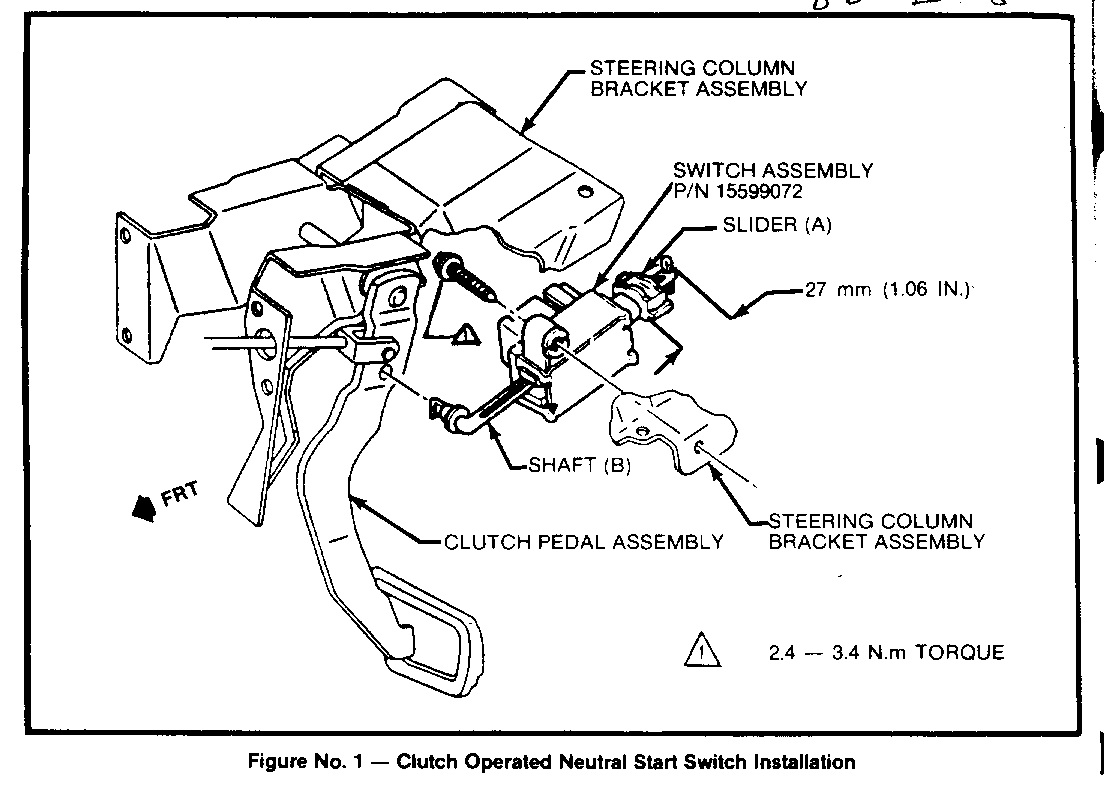NO START-NEUTRAL START SWITCH CLUTCH OPERATED-BURNT CONTACTS

MODELS: 1985 "M" VAN WITH MANUAL TRANSMISSION
The neutral start switch is a starter safety device designed to keep the starter motor from operating if the clutch pedal is not pushed down all the way to the floor. Some 1985 "M" vans will not start, however, even though the clutch pedal is fully depressed. Upon inspection, these vehicles will typically have neutral start switches with burnt contacts. Also, due to the geometry of the clutch pedal travel, the switch is not always activated, resulting in a "NO START" condition. Starting with July 1985 built trucks, a new clutch operated neutral start switch, P/N 15599072, will be installed. This switch will mount exactly as the existing switch.
SERVICE PROCEDURE
1. Follow the neutral safety switch removal procedure as outlined in Section 7C of the 1985 Safari Service Manual.
2. Install the neutral safety switch, P/N 15599072, as specified in Section 7C, following the adjustment procedure below.
ADJUSTMENT PROCEDURE
a. The forward or leading edge of slider (A) should be approximately 27.0 mm (1.06 in.) from the end of shaft (B) prior to installation of the switch. This measurement includes the thickness of the slider as shown in Figure No. 1.
b. Care must be taken that the clutch pedal is not moved in such a manner that the slider is moved until all mats and/or carpets are installed in the vehicle.
c. When all mats and/or carpets are in place, the clutch pedal should be depressed to the floor mat and/or carpet. A "clicking" noise will be heard as the automatic adjusting mechanism sets itself.
d. Failure to observe these procedures will result in a truck needing excessive clutch pedal travel to actuate the neutral start switch; or in some cases, a "no start" condition.

General Motors bulletins are intended for use by professional technicians, not a "do-it-yourselfer". They are written to inform those technicians of conditions that may occur on some vehicles, or to provide information that could assist in the proper service of a vehicle. Properly trained technicians have the equipment, tools, safety instructions and know-how to do a job properly and safely. If a condition is described, do not assume that the bulletin applies to your vehicle, or that your vehicle will have that condition. See a General Motors dealer servicing your brand of General Motors vehicle for information on whether your vehicle may benefit from the information.
